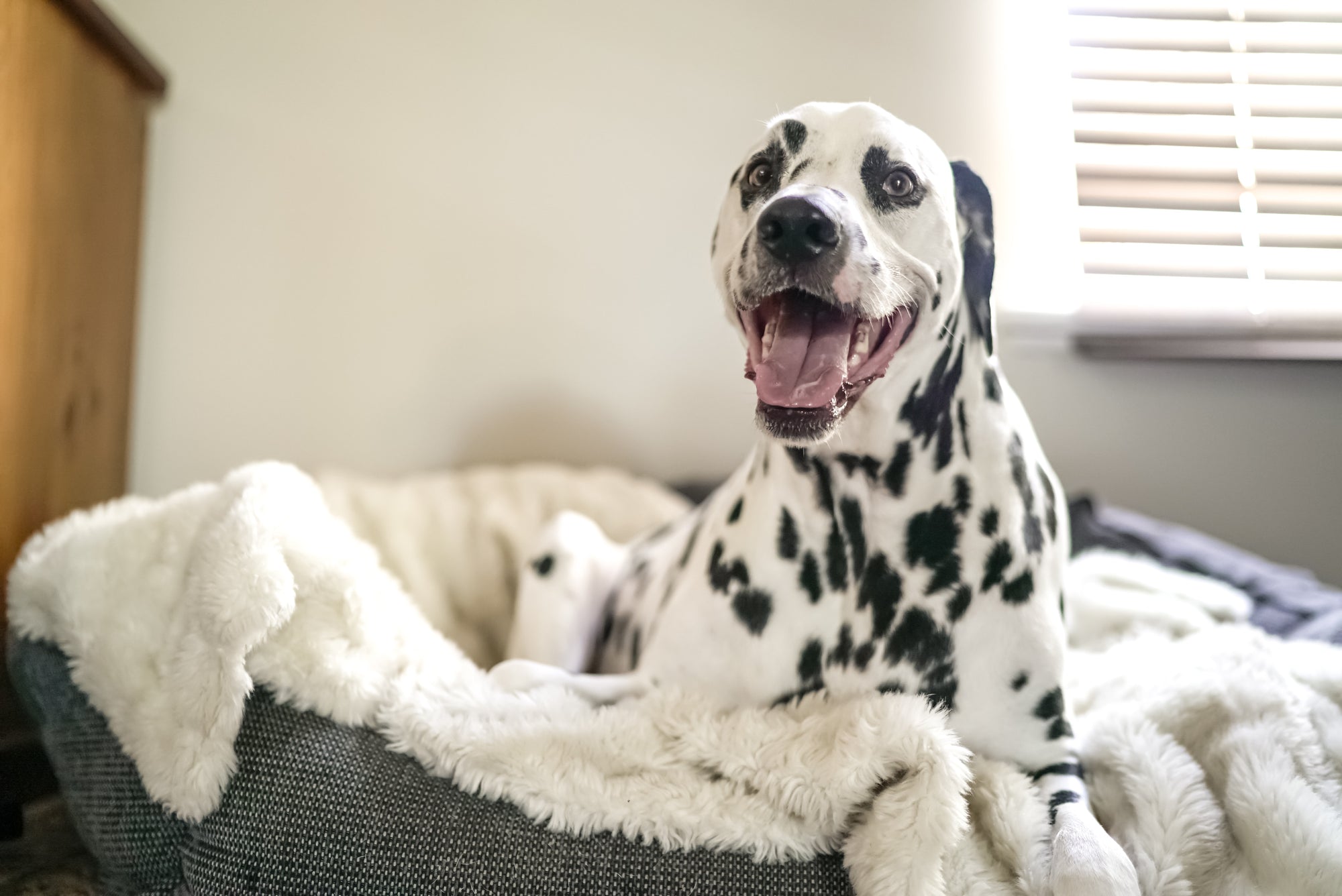

· By Dr. Jill Lopez
What Triggers Dog Anxiety?
There are a number of things that can trigger dog anxiety. Some dogs may be anxious due to genetics, while others may have experienced something traumatic in their past. Still, other dogs may simply be prone to anxiety because of their personality type. Regardless of the cause, there are a few things that are known to trigger dog anxiety.
One of the most common triggers for dog anxiety is a change in routine. Dogs are creatures of habit and they like to know what to expect. When their routine is disrupted, it can cause them a great deal of stress. This is why it's important to try to stick to a regular schedule as much as possible, especially if your dog is prone to anxiety.
What Causes an Anxious Dog?
Dogs can become anxious for many reasons - sometimes it’s obvious what is causing their reaction, but other times it’s not. In that case, you can often figure out what is triggering their abnormal behavior through trial and error or by paying attention to when their body language indicates that they are feeling nervous.
Separation Anxiety
Dogs are very intuitive creatures and can pick up on our cues, even if we don't realize it. For example, if they have separation anxiety, your dog may start to act anxious when they see you put on your coat. This is because they associate the coat with you leaving and becoming anxious about being left alone.
When they're left alone, it can be a very stressful experience. This is why it's important to provide your dog with plenty of attention and companionship. If you must leave your dog alone, try to do so for short periods of time at first and gradually increase the amount of time as your dog becomes more comfortable with it.
Strangers in the House
If your dog becomes nervous when you have company over, it could be because they are afraid of strangers or unsure of what is expected of them. Dogs are very social creatures, and they thrive on human interaction.
If your dog is used to being the only animal in the house, it may feel threatened when other people come over. Similarly, if your dog isn't used to having guests in the house, they may not know how to behave.
Loud Noises
Many dog owners have experienced the panicked look on their furry friend's faces during a thunderstorm. While it may be amusing to see our dogs cower in fear, it's important to remember that they are reacting to a very real threat. Dogs have sensitive hearing and can be startled by loud noises such as thunder.
This is why it's important to avoid using loud voices or noises around your dog if possible. If you must use loud noise, try to do so gradually so that your dog can get used to it. With a little patience and understanding, we can help our dogs through their anxious moments and provide them with the support they need.
Conclusion
Dogs get anxious for different reasons, and it's important to understand what triggers your dog's anxiety in order to help them feel better. If you're able to identify what sets off your dog's anxiety attacks, you can work on helping them feel more comfortable and confident.
There are many ways to help ease a dog's anxieties, such as using calming supplements or pheromone therapy products, and positive reinforcement training. By understanding what triggers your dog's anxiety, you can work to alleviate it and create a more relaxed home environment for both of you.
Brave Paws™ Anxiety and Stress Support Chewables may promote calm behavior in dogs who exhibit nervousness or anxious behavior. Our clinically-studied and patented botanical blend contains naturally occurring bioactives, including betulinic acid, which have been found to promote a sense of calm and relaxation in dogs.
